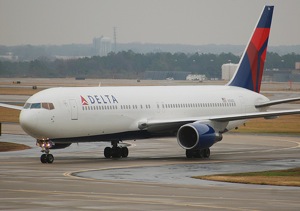And I will be far from the action. Thankfully, the security alert around an unattended van in Times Square revealed nothing more significant than an abandoned vehicle. But between the cold weather and the crowds, I try to be out of mid-town Manhattan no later than 3:00 p.m. on December 31, which is when the police begin to close off traffic for the countdown celebrations. But I will miss seeing the New Year’s Eve Ball, a 12-foot geodesic sphere and, weighing in at 11,875 pounds, twice the size of previous balls. The 2010 New Year’s Eve Ball is covered with 2,668 Waterford crystals and powered by 32,356 light-emitting diode, allowing it to emit more than 16 million colors and billions of patterns. As I have Waterford crystal stemware on my home tabletop, I am delighted to see the modern display of this traditional craft. I wish you a safe evening ushering in the New Year as we look forward to starting afresh in 2010.
Archive for December, 2009
New Year’s Eve Celebrations
Thursday, December 31st, 2009Running Naked
Wednesday, December 30th, 2009“Running naked” refers to the decision to forego insurance for known risks. It is an increasingly popular strategy among states experiencing budget constraints. But it is risky. Pre-financing a natural disaster through insurance is more cost-effective than financing recovery but for governments with falling tax receipts, the temptation to forego insurance arises if probability of a natural disaster is low. Funds spent on insurance premiums are not recoverable, which could lead to regret when funds are diverted from other programs for insurance coverage and the storm season proves mild. To save resources following the credit crisis, states are cutting public reinsurance programs to save premium expense. For example, less than one year after reinsurers paid $1.5 billion in claims related to Hurricane Ike, Texas opted out of its reinsurance program to save premium expense. California soon followed.
Governments typically fund emergency and relief efforts and rebuild public infrastructure after a disaster by issuing debt, raising taxes or reallocating funds from other budget items. These alternatives are considerably more expensive than pre-financing risks, but the states are presumably gambling that the federal government will bail them out in the event of a major natural disaster. European governments have also been cutting their pre-disaster risk bills to alleviate budget strains. But the gamble may not pay off. The U.K. this year experienced unexpected flooding in some parts of central and western England. In any given year, 30% of floods occur in regions that have no prior history of flooding, making the choice to forego insurance a risky one.
Ironically, developing countries are moving in the opposite direction. They face considerably greater challenges, such as the awful trade-off of limited resources and compelling needs to invest in education, health and other infrastructure. To resolve these competing interests, the World Bank structured its MultiCat Program to allow countries to purchase cost-effective coverage through the capital markets for various threats, including floods, earthquakes, hurricanes and windstorms. The first such program was structured in Mexico.
Will the bet pay off? Should a major disaster strike California or Texas, residents of those states will face onerous tax increases if they cannot persuade the federal government to bail them out. But even should the U.S. be lucky enough to avoid a major catastrophe, we are at risk of ceding the lead in financial innovation to other countries.
It Adds Up
Tuesday, December 29th, 2009At a recent small business event, I had the pleasure of being seated next to a chapter director of the National Hispanic Chamber of Commerce. Over lunch she shared with me her own insurance disaster, which illustrates the importance of good record-keeping – a costly way of learning a lesson! She collects Lladro figurines. Over 30 years of marriage, her husband would give her gifts from Lladro for commemorating special events: their wedding anniversary, Valentine’s Day, her birthday and Christmas. Lladro figurines are handcrafted in Spain and cost several hundred dollars each. Some of the figurines she has collected are irreplaceable as they are models that are no longer in production. And of course, their sentimental value is incalculable as they represent precious memories with her husband, who passed away. She had the figurines prominently displayed in a glass curio cabinet in her living room. She lost her collection when her home was burglarized. Unfortunately, she did not calculate the value of her collection in her coverage limits for her homeowner’s insurance. Nor did she endorse the collection or document the assets with videotape or photography, for example, or sales receipts. Over 30 years, that collection had become quite valuable, so in addition to the emotional distress associated with its loss, there is a significant financial loss as well. It is an all too common mistake to neglect to update asset values or to underestimate the value of non-traditional assets. I chided Stefan, our IT guru, for this very oversight. He had purchased a state-of-the art stereo system at a retailer’s bankruptcy sale for a ridiculous price. But in the event of fire, theft or other loss, he would never be able to replace that asset for what he had paid for it. It is not covered in his insurance policy, yet he insures his automobile, which is worth far less. I use the New Year as an occasion to update my business and home records to ensure that my insurance records are up to date. Please do the same – it will give you peace of mind.
Air Travel Gets Nastier
Monday, December 28th, 2009The attempted Christmas Day bombing on Northwest Airlines Flight 253 from Amsterdam to Detroit was thwarted, but air travelers will continue to be inconvenienced by new rules imposed by the Transportation Security Administration. There does not appear to be a cost-benefit to such measures. According to the Bureau of Transportation Statistics, there have been six attempted terrorist attacks on flights into or within the U.S.: four planes that were hijacked on 9/11, the shoe bomber’s attempt to blow up a plane in December 2001 and now this incident. This works out to one terrorist attack for more than 16.5 million airline departures within or to the U.S. TSA’s response was to further inconvenience airline passengers by various means including requiring passengers to remain seated during the final hour of flight and to forfeit access to their carry-on luggage at that time. I limit my air travel, not because of safety concerns, but because travel has become such an ordeal. If you have not already done so, now is the time to invest in a $99 camera for cheap Internet videoconferencing. Even if your recession budget allows for air travel, the inconvenience endured by Air Canada passengers into the U.S. today suggests that all but the most critical business travel should be re-evaluated.
U.S. Senate Works Christmas Eve
Sunday, December 27th, 2009The Senate worked late into the night to socialize one-sixth of the U.S. economy: the entire healthcare sector. No matter how you look at it, it is a no-win for small businesses. If you are satisfied with your current medical insurance, but the government deems your benefits “generous”, you will be hit with punitive taxes. If you are over age 65 and are covered by Medicare, your benefits may be adjusted by the government to rationalize the system.
And all of us will be paying for the cost-shifting into enlarged state Medicaid programs and pork-barrel politics played to buy the votes of senators reluctant to support this bill. Even worse, our political leaders had the moxie to demonize the insurance industry, even as this “reform” enriches the industry by delivering captive policyholders to them with no offsetting pressure on cost containment. We are still left with a patchwork of 50 state insurance systems and no national economies of scale. Small businesses will still be overpaying for insurance, while large corporations can escape the most onerous burdens with self-insurance or other captive schemes. Let’s see if the House shows any political courage after the New Year, but the signs are ominous.
Power Outage Delays New York Trains
Wednesday, December 23rd, 2009This is the time of year when I miss Switzerland the most. It is not just the beauty of Zurich, decorated with holiday lights for Christmas. It is the efficiency of the Swiss train system. You can set your watch by the arrivals and departures of the trains. Today an electrical problem outside New York City stopped Amtrak train service for three hours, stranding thousands of holiday travelers. The good news is that during the outage trains en route to New York had on-board power for heat and lighting, which isn’t always the case when the route loses power. The disruption delayed service up and down the East Coast, including commuter traffic on New Jersey Transit, a local rail line. I now expect such disruptions and plan for them as a routine matter. One tip for train travel, particularly if you take the train to Washington or Boston for business, as I often do: make sure your laptop is fully charged when you board. Keep it charged by choosing a window seat. Then if the power goes out, you have another three or so hours left on your battery. I also pack snack food as the café car will always run out of food, and the choice isn’t particularly appetizing anyway. Finally, call for your ground transportation on your cell phone as you approach the station. There is generally limited parking space at Amtrak city stations and with long delays, you can’t plan for a timely arrival.
Forbes Boost Your Business Awards
Tuesday, December 22nd, 2009Forbes hosted a reception at the Forbes Gallery to celebrate the winner of its “Boost Your Business” competition. The winner receives a $100,000 capital infusion, welcome to any start-up, but particularly in this environment where funding is scarce. Entrepreneur editor Brett Nelson cited the gloomy statistics released in the annual survey of members of the National Venture Capital Association. Most venture capitalists reported a decrease in seed and early-stage funding with fewer resources shifting to more established companies seeking follow-on funding to scale for growth. The study also found that among venture capitalists:
- 87% expect that funds raised in 2010 will be on average smaller than in previous years.
- 48% predict more foreign LPs investing in U.S. venture funds in the coming year.
- 90% predict that the number of venture capital firms will decline over the next five years.
- 72% expect the venture capital industry to contract between 1 percent and 30 percent.
Of course, the implications for the VC industry are particularly gloomy for the three to five year horizon when, having skipped a generation of early seed funding, there will be a cohort gap seeking follow-on funding in the future. It is sobering to consider the consequences for our economic growth with such short-sighted investments. Notwithstanding the tough funding environment, the evening was a celebration of entrepreneurship and thanks to Forbes for their hospitality.
Snow Disruptions
Monday, December 21st, 2009A winter storm struck the East Coast this weekend, leaving up to two feet of snow, on what is traditionally the busiest shopping weekend of the holiday season. I hope your contingency plans included telecommuting for staff who could do so and e-commerce for your own shopping and for serving your home-bound customers. Airlines are rebooking passengers who were ticketed on canceled flights. According to flight logistics experts, the airlines need three days to rebook passengers and catch up for a single day of cancellations. A storm of this magnitude may require as many as five days. Of course, this bumps the displaced passengers against holiday travelers on one of the most congested travel times of the year. So from travel disruptions to lost sales, a snow storm can have major consequences for your business.
Buying the Best Insurance for Your Business
Sunday, December 20th, 2009 The small business section of the New York Times published an article titled “Buying the Best Insurance for Your Business.” I was among the experts quoted in a piece focusing on business interruption insurance. Too often small business owners focus on property damage and overlook the need to protect against revenues lost when disaster strikes. The article reports that the owner of a beauty company whose business experience a fire learned this lesson the hard way. The article also provides helpful tips on purchasing general liability and workers compensation insurance.
The small business section of the New York Times published an article titled “Buying the Best Insurance for Your Business.” I was among the experts quoted in a piece focusing on business interruption insurance. Too often small business owners focus on property damage and overlook the need to protect against revenues lost when disaster strikes. The article reports that the owner of a beauty company whose business experience a fire learned this lesson the hard way. The article also provides helpful tips on purchasing general liability and workers compensation insurance.
Experts Forecast an Above-Average 2010 Hurricane Season
Monday, December 14th, 2009Hurricane forecasters with Colorado State University’s Tropical Meteorology Project forecast an above-average Atlantic storm season for 2010. They anticipate 11 to 16 named storms, of which 6 to 8 to become hurricanes, with 3 to 5 to strengthen to major hurricanes (Categories 3, 4 and 5 in severity) reaching sustained winds of 111 miles per hour or more. The hurricane season begins on June 1 and runs through November 30, with peak exposures in the months of August and September. The Colorado State University team assigns a two-thirds probability of at least one major hurricane to make landfall, striking the U.S. coastline in 2010. For the U.S. East Coast, the probability of a major hurricane making landfall is 40%. The team derives its forecasts from meteorological data and revises it as conditions warrant. Neverthless, the message for small businesses is clear: while we thankfully escaped a major storm in the U.S. this year, we cannot become complacent.








